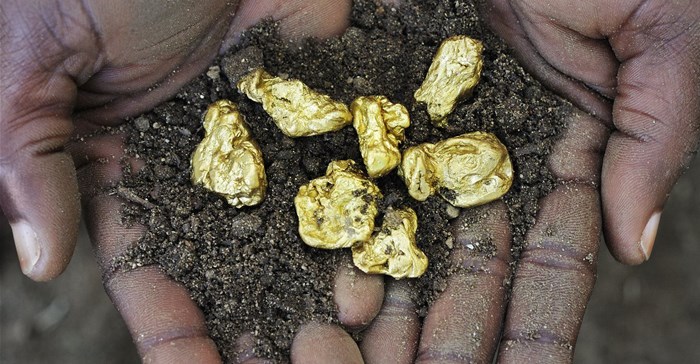Mining is so much more than just digging up rocks. Sustainable development, community welfare, greenhouse gas emissions and traceability of the source of minerals all play a substantial role in developing the industry as an economic driver in Africa.

Image source: Getty/Gallo
Some of the continent's mining heavyweights - Bold Baatar (BB), chief executive, energy & minerals, Rio Tinto, Mark Bristow (MB), president & CEO, Barrick, Srinivasan Venkatakrishnan (SV), group chief executive officer, Vedanta Resources, Caroline Donally (CD), managing director, Denham Capital - sat down and thrashed out why mining was such an economic driver for Africa.
How does African mining measure up as an engine for development?
SV: ”Not enough has been done to win the hearts and minds of the community. Mining companies don’t have an upfront plan of what the town will look like once it has left. We also should be looking at human capital, expertise and institutional knowledge.”
BB: “There are plenty of opportunities in Africa, but the problem is we’re still living in the past of big investments in high risk areas. The future model is partnerships with junior miners.”
MB: “In Africa, we always feel we are coming third in the race, but we have world class assets. We have massive endowments, but don’t look after them properly or build relationships with our host countries. Why don’t we look longer term?”
CD: ”As a private equity fund, we see incredibly rich endowments, but need to ask ourselves: ‘What are the returns vs the risk?’ We continue to look out fr stand-out opportunities. We’re looking at a four- to five-year term. We see a number of reasons to invest in Africa, but also see risk such as political and regulatory uncertainty.”
What would you like to see to be more comfortable in investing in African mining?
BB: ”As an industry, we have a history of only looking after our own resources. Look at the sand mining operations in Madagascar. We built a great port, but couldn’t find other tenants to come and use the facility. On the other hand, Chinese companies in the Democatic Republic of Congo built clusters of infrastructure like roads and rail, which will be operational long after the mine has gone.”
MB: "Most importantly, global institutions are not fulfilling their mandate. They don’t address poverty. The world needs another economic engine, but the problem is we’re not marketing ourselves.”
CD: ”Consistency is the key for investors. When we go into a place, we need to know that everybody will stick to the rules, and we need to know those rules upfront.”
What are we doing wrong?
MB: ”We don’t stick to promises. We have to invest in environmental social governance (ESG). When you have a population struggling to survive, they don’t care about anything but survival. People in this modern world want to be part of the business, not just the labour.”
BB: “If we look at the Rio Tinto operations in Mongolia, where we were struggling was connecting with people. We spent a lot of time building engineers, but not lot of time building social scientists.”
SV: ” Promises on both sides are broken. The maintenance type dialogue on what will happen after the mine is not happening. The human touch element is lost. As a CEO of a company, I must ask myself: ‘Would I retire in this community?’”
Is the mining industry ready to embrace traceability?
SV: Yes. But the practicality is how do you trace to source of minerals that are blended into components? How can we know where the tin or cobalt comes from that we find in our batteries?”
BB: “We also need to look at traceability in terms of the carbon footprint.”
MB:”We need to ask ourselves questions, like ‘why is Kenya the biggest producer of gold, but has no gold mines?’ Where is it all coming from? Traceability is a responsibility that all institutions must embrace.”
What about greenhouse emissions?
MB: ”Africa is almost negative when it comes to CO2 emissions. The biggest culprits, the industrialised countries are dictating to us what our carbon reduction should be. No-one thinks that we have all these people that we have to create jobs for.”
BB: ”The poverty vs capital is a debate that hasn’t taken place yet. All the capital sits in industrialised countries like the US, where managers are under pressure to show green credentials.”
SV: "Greenhouse emissions management needs to start in developed countries.”















































